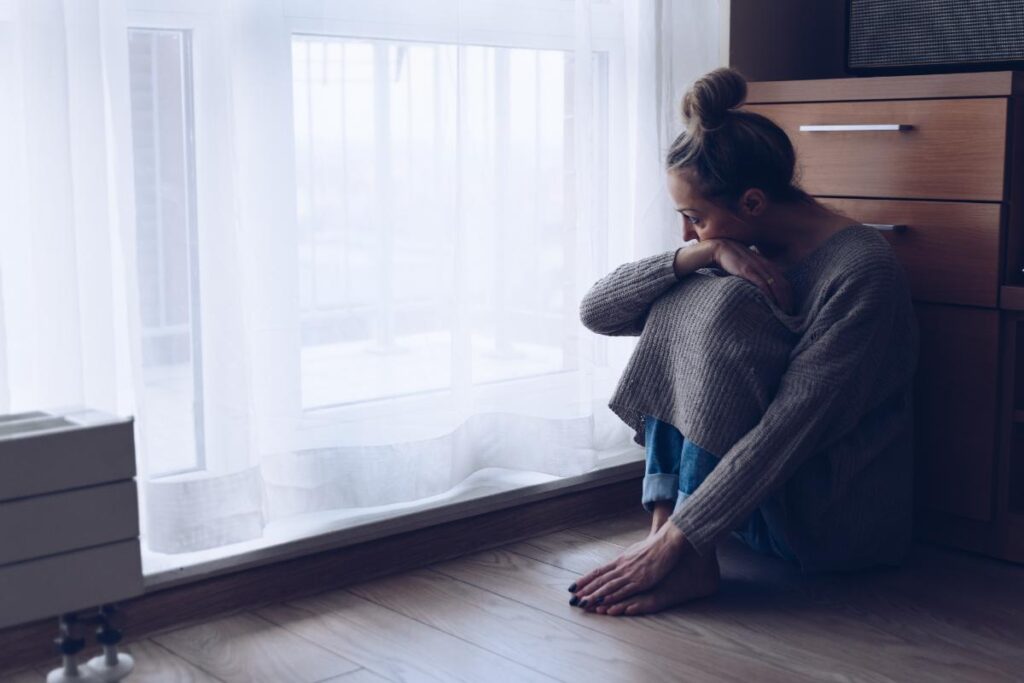For people with an anxiety disorder, whether diagnosed or undiagnosed, it is common to try to reduce that anxiety with a drink. After all, alcohol is a sedative and can take the edge off severe anxiety in certain cases. At least, at first. In fact, alcohol misuse can worsen anxiety in the long run. Someone who routinely uses alcohol to self-medicate anxiety may end up with co-occurring disorders—addiction to alcohol and anxiety. If you or someone you care about is struggling with anxiety as well as a potential alcohol use disorder, the best option is a dual diagnosis treatment program that can address both disorders at once.
Reach out to The Right Step Houston to learn more about how alcohol and anxiety interact in your brain and what the treatment options are when these disorders are co-occurring. Simply fill out this form or dial 1.844.768.0169 to connect with one of our staff.
Understanding Alcohol and Anxiety
Having a stressful day is different from having an anxiety disorder. In our culture, having a drink at the end of a difficult day or week is considered a completely normal way to unwind. However, chronic anxiety that can seem to come out of nowhere may be a symptom of an anxiety disorder. If you have anxiety, you can feel it at any time, but it is also likely to be triggered by everyday stress and certainly extraordinary stress. Using alcohol to treat anxiety symptoms on a regular basis can make things worse, however.
Some effects of chronic use of alcohol to medicate anxiety symptoms include:
- Tolerance of its calming effects on anxiety means more alcohol is needed, which can lead to abuse, tolerance, and potentially addiction.
- The euphoric, calming effects of alcohol go away, and feelings of depression set in as blood alcohol content falls. This triggers anxiety.
- Alcohol interrupts the production of serotonin and other feel-good hormones in the brain, which actually leads to worsening anxiety over time as the feedback loop is disrupted. More alcohol is needed to approximate those feelings until use has become abuse and addiction.
It is also possible for those with a long-term alcohol use disorder to develop anxiety that they may not have had before. The reason for this is that the altered brain activity over time makes recovery from traumatic or painful events more difficult, which can lead to chronic anxiety.
When both disorders—alcohol use and anxiety—are co-occurring, things become more challenging, and seeking professional help is the best way forward to regain balance and sobriety while getting the help you deserve and need for your anxiety.
Treating Co-Occurring Disorders
When someone is in treatment for co-occurring anxiety and alcohol use disorders, dual diagnosis treatment is best. It treats both disorders in a coordinated approach so that neither one can sabotage the healing process for the other, which can happen if they are treated separately and sequentially.
The integrated approach your care team uses will be completely individualized to you and your symptoms, mental and physical health history, and circumstances. Your treatment plan might include:
- Medications to ease withdrawal and ongoing cravings
- Medication for easing symptoms of anxiety
- Individual behavioral therapies such as cognitive-behavioral therapy or dialectical behavior therapy
- Education about mental health and addiction
- Education about coping skills, identifying and avoiding triggers, and how to navigate life post-rehab
- Group counseling
- Support groups
- Aftercare or alumni follow-up care
When alcohol and anxiety combine and lead to a diagnosis of co-occurring disorders, remember that help is available.
Call The Right Step Houston Today to Talk About Dual Diagnosis Treatment
The Right Step Houston can answer your questions and listen to your story. How can we help? We offer a range of evidence-based therapies that are proven effective in treating co-occurring disorders such as alcohol addiction and anxiety. Our program offers inpatient and outpatient options for people from all walks of life.
Make The Right Step Houston your next phone call. Dial 1.844.768.0169, or if you prefer to connect online, simply fill out this easy form.

